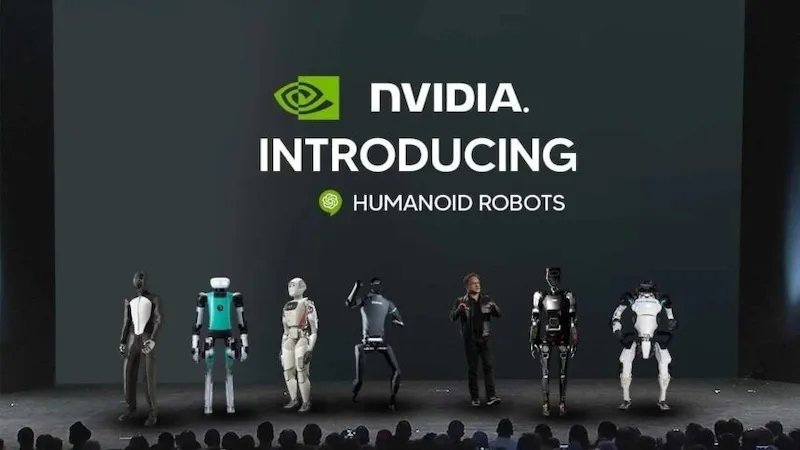Nvidia is set to intensify its focus on robotics in 2025 with the introduction of its new compact computer platform for humanoid robots, known as Jetson Thor. This move marks a significant evolution in Nvidia’s strategy, which has been in development for several years. The announcement was confirmed by the Financial Times and follows a series of demonstrations by CEO Jensen Huang at the company’s annual conference earlier this year, where he showcased various robots powered by Nvidia’s advanced chips.
The Jetson Thor platform aims to serve the vast ecosystem of robot manufacturers rather than competing directly with established players like Tesla. Nvidia’s vice president of robotics, Deepu Talla, emphasized that the company intends to provide foundational technology to “hundreds of thousands” of robot makers globally. This approach positions Nvidia as an original equipment manufacturer (OEM) in the robotics space, enabling smaller companies to leverage cutting-edge AI capabilities without the need for extensive in-house development.
The timing of this initiative is particularly strategic. According to Talla, two key technological advancements have paved the way for this shift: the rapid growth of generative AI models and the ability to train robots using simulated environments. These breakthroughs allow for more sophisticated and capable robotic systems that can adapt to various tasks and environments, enhancing their utility across different sectors.
Nvidia’s push into AI-powered robotics also comes at a time when major clients like Amazon and Google are exploring ways to reduce their reliance on Nvidia’s AI chips by developing their own solutions. This competitive landscape underscores the urgency for Nvidia to solidify its position in the robotics market, where demand for intelligent automation continues to rise.
The implications of Nvidia’s advancements extend beyond just hardware; they signify a broader trend towards integrating AI into everyday robotics. As humanoid robots become more prevalent in industries ranging from logistics to healthcare, the need for robust processing power and intelligent algorithms will be paramount. Nvidia’s Jetson Thor is poised to meet this demand by providing a scalable solution that can support various applications, from simple tasks to complex interactions.
In conclusion, Nvidia’s forthcoming Jetson Thor platform represents a pivotal moment in the intersection of AI and robotics. By focusing on empowering a diverse range of robot manufacturers, Nvidia is not only enhancing its product offerings but also shaping the future landscape of intelligent automation. As 2025 approaches, all eyes will be on how these developments unfold and their impact on both the robotics industry and broader technological advancements.


Leave a Reply